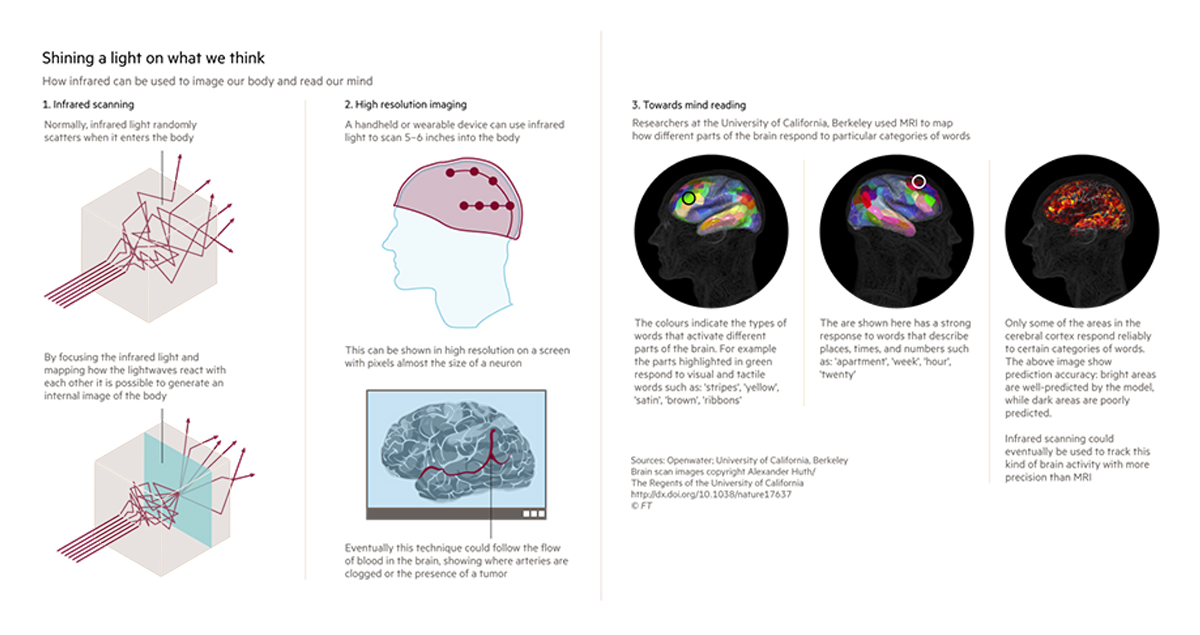Digital distractions are making us dumb and twitchy

“Our inventions are wont to be pretty toys, which distract our attention from serious things,” complained Henry David Thoreau. “We are in great haste to construct a magnetic telegraph from Maine to Texas, but Maine and Texas, it may be, have nothing important to communicate.”
Two centuries since the poet, philosopher and naturalist was born, human communications have intensified at warp speed thanks to digital technology. Our behaviour is changing as a result of an information and communications overload, both at work and in our personal lives. Finding a way to manage the barrage is an important challenge as the information economy develops.
Distractions at work, such as the constant inflow of emails, notifications and pop-up chats, take their toll. One study, by researchers at Carnegie Mellon University, found that the mere prospect of being distracted by a ringing mobile phone reduced test participants’ cognition skills, measured by a test involving reading a passage of text and being asked questions about it.
Our addiction to smartphones and social media is also making us more fidgety. One study of Android users by research company Dscout found that people tapped, swiped and clicked their smartphones 2,617 times a day. Apple’s products are sufficiently addictive to prompt activist investors to demand research be done into the negative impacts of phone use on children. There is growing concern about a mental health crisis in young people caused by the addictiveness of social media, the internet, and gaming.
“There is nothing new about the existence of an attention economy that monetises our eyeballs,” says Cal Newport, associate professor of computer science at Georgetown University and author of Deep Work: Rules for Focused Success in a Distracted World. “But when you combine this business model with powerful handheld devices that are always connected to the internet, algorithms being weaponized to extract as much of our time and attention as possible, and hundreds of billions of dollars of investment, suddenly the societal impacts become worrisome.”
Prof Newport is worried about the next generation. “It is almost certainly true that young people are suffering a rapid decline in their ability to concentrate. Given the increasing share of the economy dedicated to knowledge work, in which concentrated thought is the primary driver of value production, this decline might start to impact large scale economic metrics, if it hasn’t already”.
If information overload stops us concentrating deeply, it also stops us resting deeply — and that is just as damaging. Boredom, zoning out and absent-mindedness are all fertile mental states for creativity.
“We’re at an interesting moment in neuroscience in terms of understanding how boredom is a gateway to mind-wandering,” says Manoush Zomorodi, host of the WNYC podcast Note to Self and author of Bored and Brilliant. “When you get bored, say you are folding laundry, or doing something that doesn’t require focused attention, you ignite the ‘default mode’ in your brain, and this is where we do our most original thinking,” she says. “We take two seemingly disparate ideas and smash them together to make something new. And we do autobiographical planning. We look back at our life, take note of highs and lows, create personal narratives, and look at our future and decide where we want to go.” If in a quiet moment we instead check for emails or social media updates, then we may be in danger of losing the experience of boredom entirely.

Overcoming overload is hard, because we are addicted to information — or, more specifically, to novelty. This was helpful in the hunter-gatherer era, because it could lead us to food and resources. It is less helpful online, where we cannot ever be satiated. Companies are tapping this foraging-related brain circuitry to make products more addictive. One gamification firm, with clients including Disney and Google, even named itself Dopamine, after the brain chemical. Some of Silicon Valley’s biggest names are raising the alarm, from Facebook’s founding president Sean Parker to former Google design ethicist Tristan Harris.
Is there a solution?
Yet there are glimmers of hope. Consumers, and even investors, are paying more attention to the problem. Facebook published a study confirming that its users do indeed feel worse after ‘passively’ consuming social media. It argued however that social media increased wellbeing when people used them actively, especially when “sharing messages, posts and comments with close friends and reminiscing about past interactions”. It recently announced changes to its news feed, to prioritise the sharing of meaningful content between friends.
At work, companies are deploying software, artificial intelligence and machine learning to bring order and structure to the informational chaos that many office workers now feel. Slack can reduce email overload by shifting high-volume, open-ended communications into chat forums. IBM Verse and SalesforceIQ sift information and prioritise actions for staff. Google has rolled out auto-reply suggestions on Gmail, with algorithms proposing possible replies to messages, and tools like Evernote consolidate scattered online and offline notes, links and resources.
Then there are the apps and internet blockers which forcibly disconnect people from certain sites, or during certain times, including Thrive App, from Arianna Huffington’s wellbeing consultancy and Samsung.
The power of the humble notebook
Meanwhile Prof Newport, who gained tenure at the young age of 33 without working in the evenings or at weekends, says the humble notebook is his tool of choice. His reasons are subtle, relating to the ways in which the finitude of three dimensional space shapes our thinking. “When scheduling your day in a notebook, the fact that the page is a fixed size embodies the reality that your time and attention are limited commodities. Days scheduled on paper tend to be more realistic and balanced than those driven [by] a bottomless inbox or voluminous digital task list.”
Research also shows that writing on paper fires up the brain circuitry associated with language processing and engenders more attentive reading. All of which might give us reason to pause before rolling out the tablets, laptops and digital education for an already screen-sapped generation.





